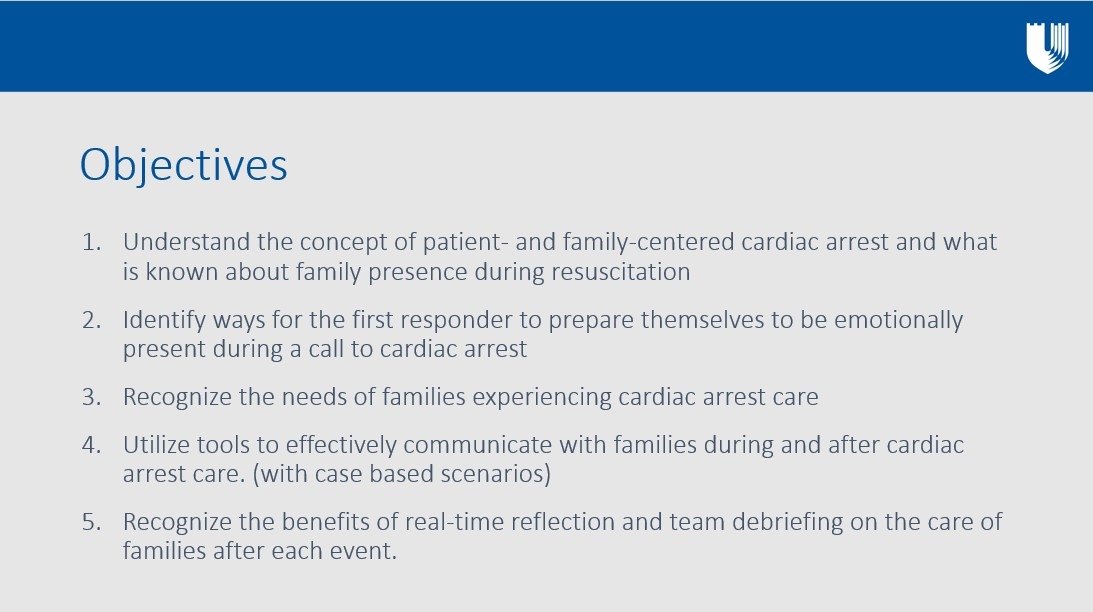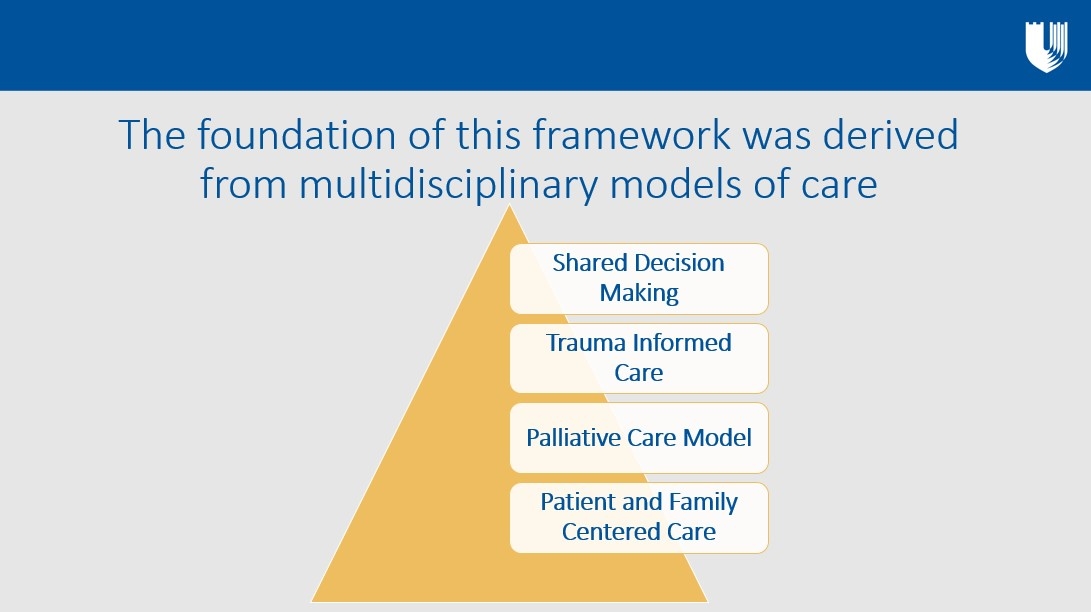Final ID: Or105
Preparing paramedics for patient- and family-centered resuscitation using an ABCD framework
Abstract Body: Introduction: Data around Family Presence During Resuscitation (FPDR) and the Family Facilitator role are rapidly evolving in inpatient care settings. Yet, there is little formal preparation available for pre-hospital clinicians. A large Canadian paramedic group identified this gap in preparation for FPDR and requested practical, practice-changing education for their clinicians.
This project aimed to develop and deliver virtual education regarding patient- and family-centered care using current FPDR evidence and foundational care theories. Additionally, we aimed to evaluate the learner's baseline knowledge, comprehension of the content, and perspective of the framework’s application to practice.
Methods: Three interprofessional resuscitation experts used current FPDR evidence and theories to develop the ABCD framework. The purpose of this simple schema is to provide memorable mental cues to prepare resuscitation team members for patient- and family-centered care during cardiac arrest. The ABCD tool emphasizes (A) Awareness of the family facilitator role and needs of the family, (B) Being Present emotionally and physically, (C) Connecting patients and family to the team and other resources, and (D) Debriefing and, in the case that ROSC is not achieved, leading a Pause to recognize the life lost. This framework was introduced during an hour-long pilot session for 75 Paramedics in a large Canadian province. The learning objectives included (1) identifying ways to be emotionally present, (2) communicating effectively with families during and after cardiac arrest care, and (3) recognizing the benefits of real-time reflection and team debriefing. An online survey was used to evaluate the impact of this virtual education on the participants' confidence in their communication skills and caring for family members during resuscitation.
Results: Exposure to the ABCD framework positively influenced the confidence with which paramedics responded to families during resuscitation. Attendees responded positively to case studies; many said they felt strongly that they could lead a Pause in the case of patient death and planned to do so. At 3 months post-education, most respondents had already applied the content to their clinical practice.
Conclusion: The ABCD framework demonstrates potential to prepare interprofessional learners to provide patient- and family-centered care during resuscitation, and this work represents a first step to validating the framework’s content.
This project aimed to develop and deliver virtual education regarding patient- and family-centered care using current FPDR evidence and foundational care theories. Additionally, we aimed to evaluate the learner's baseline knowledge, comprehension of the content, and perspective of the framework’s application to practice.
Methods: Three interprofessional resuscitation experts used current FPDR evidence and theories to develop the ABCD framework. The purpose of this simple schema is to provide memorable mental cues to prepare resuscitation team members for patient- and family-centered care during cardiac arrest. The ABCD tool emphasizes (A) Awareness of the family facilitator role and needs of the family, (B) Being Present emotionally and physically, (C) Connecting patients and family to the team and other resources, and (D) Debriefing and, in the case that ROSC is not achieved, leading a Pause to recognize the life lost. This framework was introduced during an hour-long pilot session for 75 Paramedics in a large Canadian province. The learning objectives included (1) identifying ways to be emotionally present, (2) communicating effectively with families during and after cardiac arrest care, and (3) recognizing the benefits of real-time reflection and team debriefing. An online survey was used to evaluate the impact of this virtual education on the participants' confidence in their communication skills and caring for family members during resuscitation.
Results: Exposure to the ABCD framework positively influenced the confidence with which paramedics responded to families during resuscitation. Attendees responded positively to case studies; many said they felt strongly that they could lead a Pause in the case of patient death and planned to do so. At 3 months post-education, most respondents had already applied the content to their clinical practice.
Conclusion: The ABCD framework demonstrates potential to prepare interprofessional learners to provide patient- and family-centered care during resuscitation, and this work represents a first step to validating the framework’s content.
More abstracts on this topic:
Adipocyte-derived small extracellular vesicles and miR-29c-3p promoted apoptosis of cortical neurons in obese mice after resuscitation via downregulating neuronal MCL1
Gan Lu, Deng Yalu, Yao Peng, Zhou Tingyuan, Zhou Chao, Cao Yu
Adverse Cardiovascular Outcomes in the Postpartum Period Associated with Upbringing-Related Social Determinants of HealthTolu-akinnawo Oluwaremilekun, Anuforo Anderson, Ezekwueme Francis, Ogunniyi Kayode, Awoyemi Toluwalase


